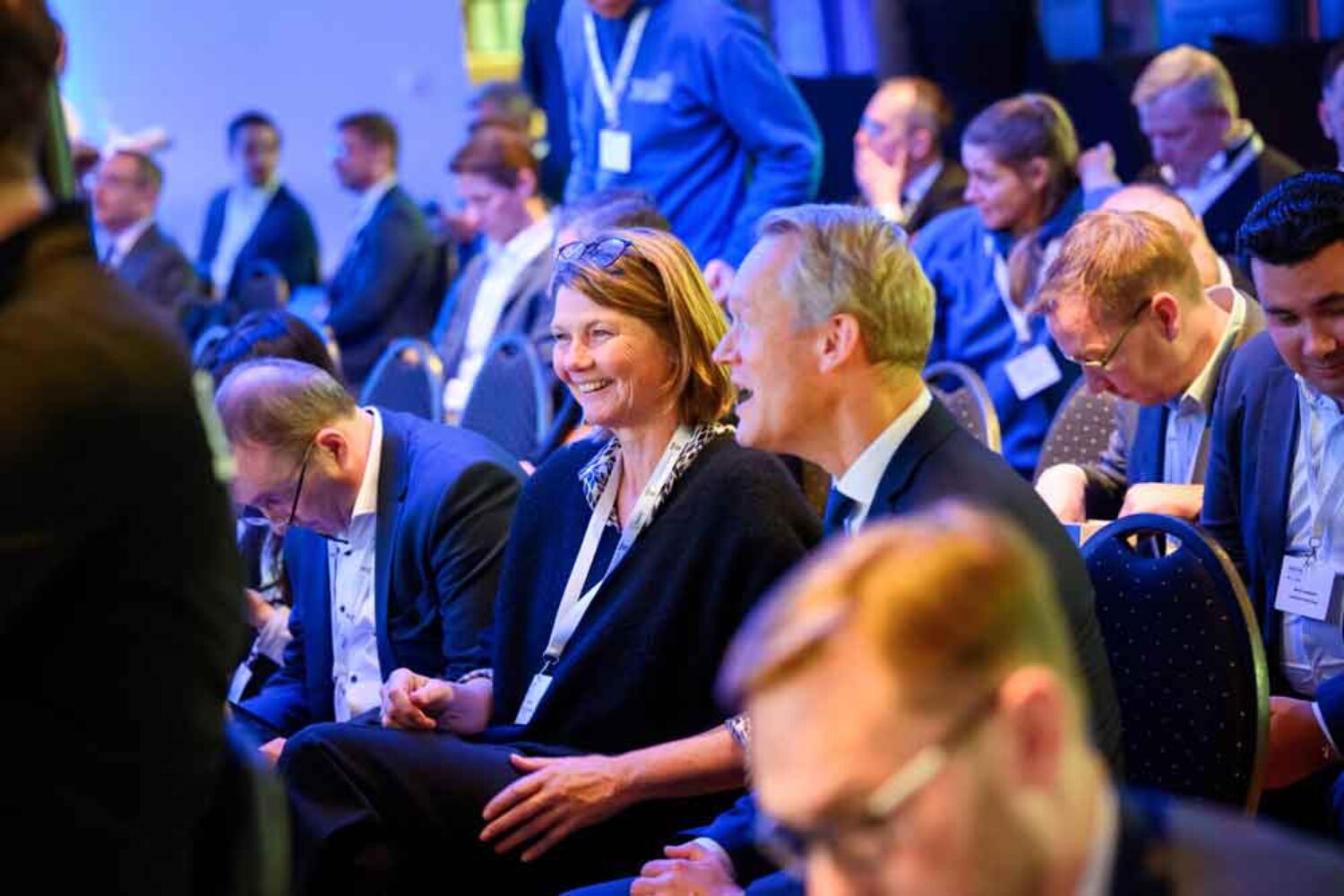At the 26th HANSA Forum, numerous representatives of the maritime industry came together to discuss current topics and developments for the future.
This year’s focus was on climate policy regulations, such as the EU ETS and FuelEU Maritime, as well as developments at the International Maritime Organization (IMO). The event in Hamburg also focused on shipping financing and the MPP/Heavy-lift segment.
Heike Deggim, Director Marine Environment Division at the IMO, explained the results of the last meeting of the Environment Committee MEPC to the participants of the HANSA Forum. Despite the challenge of finding a consensus with all member states and sometimes conflicting interests, she believes the industry is “well on the way” to achieving the climate targets by 2050 – but also conceded that a certain amount of flexibility is being retained, also in view of the challenging geopolitical situation.
FuelEU and EU-ETS in focus at the HANSA Forum
Irina Haesler, Head of EU Representation at VDR, reported on current developments regarding the EU-ETS and FuelEU Maritime, which were also increasingly included in the panel discussions in the afternoon.
Rolf Stiefel from Bureau Veritas showed ways to achieve effective compliance with the new regulations. He focused on the expansion of digitalisation in order to avoid the threat of “reporting chaos” – something that small shipping companies, in particular, are not prepared for.
The shipper side and its efforts to drive forward the transformation of shipping were also represented at the HANSA Forum. Tobias Reich, Sourcing Manager Logistics at Tchibo, presented the “Zero Emission Maritime Buyers Alliance“, an association of several companies committed to increasing demand and developing sustainable fuels. According to Reich, we are facing a “chicken and egg problem” – “And we want to be the egg from which the hen hatches.”
This slideshow requires JavaScript.
Panel discussions at the HANSA Forum
The problems that the EU’s emissions requirements pose for the shipping industry were first highlighted by lawyer Clemens Hillmer in a keynote speech, in which he explained the complicated circumstances facing owners, charterers and managers. The fact that a DOC holder is held liable for emissions, for example, is comparable to “a janitor being held responsible for the residents’ garbage charges”. In the panel discussion that followed, the speakers expanded on the topic: Friederike Hesse (CEO of Zero44), Gunnar Georgs (Regional Manager IRI / The Marshall Islands Registry), Irina Haesler and Clemens Hillmer discussed how to deal with FuelEU and EU-ETS.
This was followed by a discussion with representatives from the ship financing sector, which focused on the transformation of the industry, among other things: Philipp Wünschmann (Head of Shipping, Berenberg), Jan-Philipp Rohr (Global Head of Shipping, HCOB) and Tim Reinsch (Co-Head, TuftonVC) spoke about opportunities and developments that exist from the perspective of banks and the capital market; both in the newbuild and second-hand markets. “We need to become smarter,” said Wünschmann, referring to new financing options such as securitisation. Rohr warned that shipping regulations will increase and make financing more difficult for customers. Start-up investor Reinsch pointed out that even after FuelEU and EU-ETS, the shipping industry will face new challenges: “People underestimate how quickly new processes can get up and running,” he said.
“Shipping’s heating law”
The final discussion at the HANSA Forum focused on the MPP and heavy-lift shipping segment for the first time. Wilke Briese (CEO Briese Schiffahrt), Guido Mülder (CEO OVB), Hannes Holländer (Managing Partner, Toepfer Transport) and Lars Feller (CEO dship Carriers) spoke on stage. Key topics included the demand for alternative fuels, which does not yet play a major role in this segment, and the possibility of relocating shipbuilding from China to India or even back to Europe. The topic of FuelEU was not met with great enthusiasm – Briese called it the “heating law of the shipping industry” and questioned the sense of these regulations. Equally important for the industry is the modernisation of a comparatively old fleet – the speakers went into detail about ship types and newbuilding concepts as well as ways to improve efficiency.
A highlight of this year’s forum was the presentation of the “HANSA Maritime Excellence Award”, which this year went to Wilke Briese and Frank Dreyer. The managing directors of Briese Schiffahrt were honoured for their outstanding achievements in the industry – laudator Peter Tamm described the shipping company as an “anchor of stability” not only for the Ems region, but for the whole of Germany.
You can read a detailed review in the upcoming January issue of HANSA.













